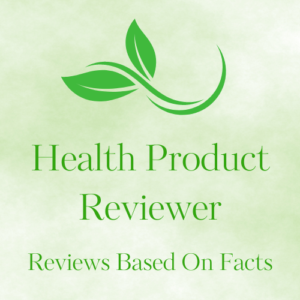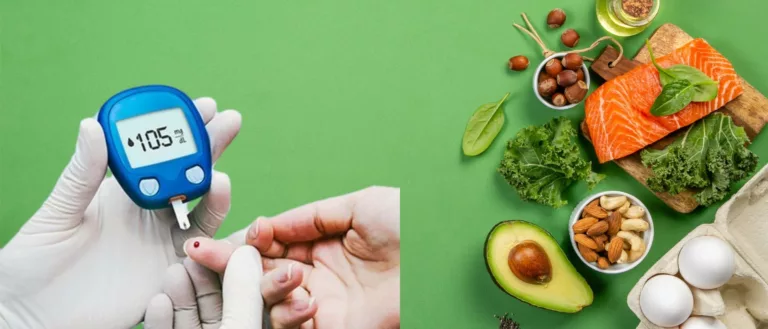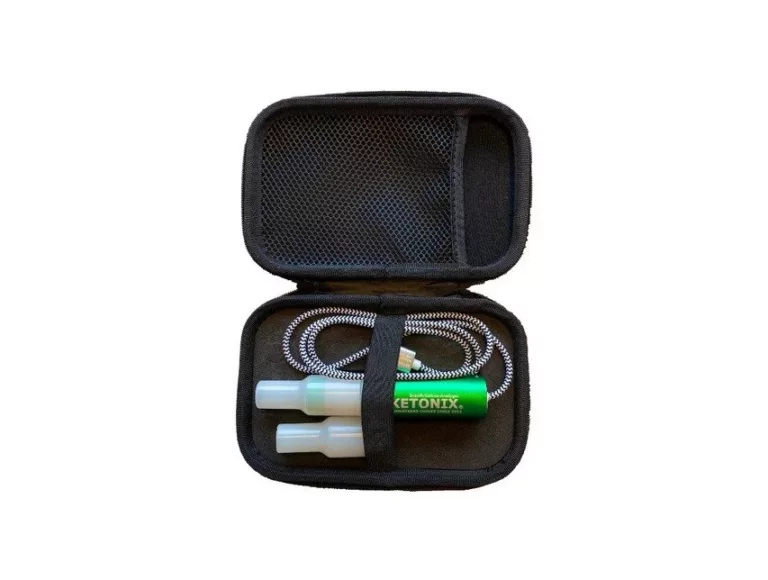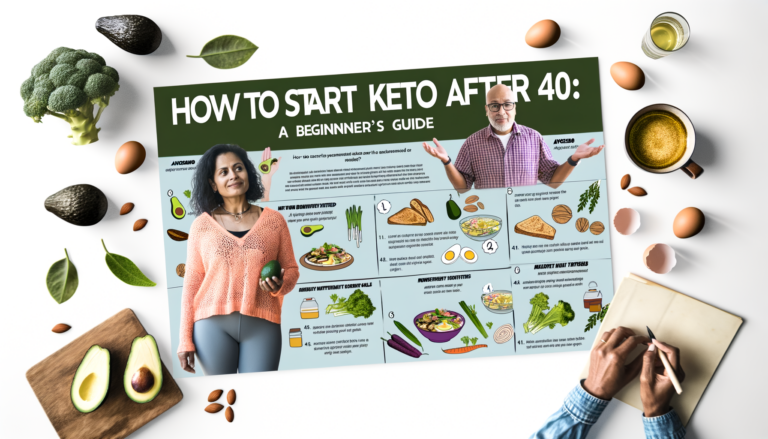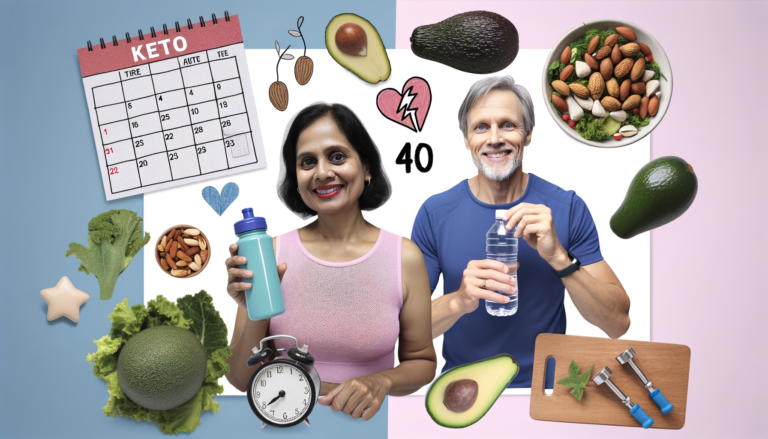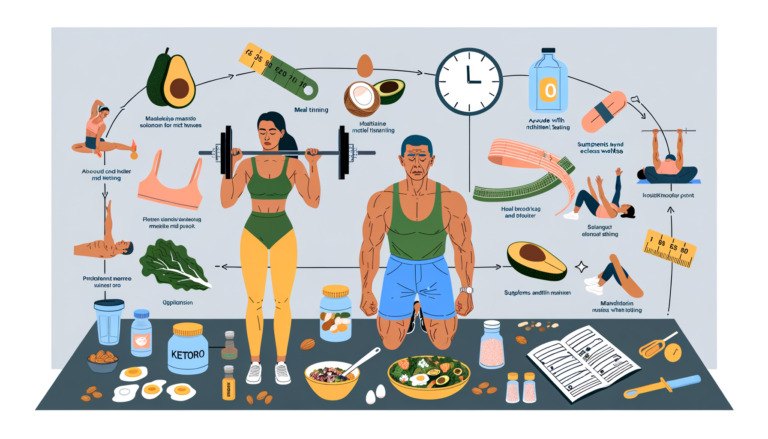As individuals age, maintaining optimal health requires a more focused approach to nutrition. Supplements and Keto After 40 have emerged as a powerful combination to support the unique dietary needs of those navigating life beyond 40. The ketogenic diet, known for its fat-burning and energy-boosting properties, can be enhanced by incorporating key supplements to fill nutritional gaps that often occur with age. From electrolytes to omega-3s, supplements can play a vital role in sustaining a healthy, balanced lifestyle while following a keto diet. This article explores the best strategies to optimize both your diet and supplementation after 40.
The Benefits of Supplements for Individuals Over 40
As individuals age, their nutritional needs may evolve, making it beneficial for those over 40 to consider incorporating supplements into their daily routine. Supplements can help bridge the gap between what their bodies require and what they may not be getting enough of through diet alone. Key nutrients like vitamin D, calcium, and B vitamins are essential for overall health and are commonly supplemented in this age group to support bone health, energy levels, and immune function.
In addition to addressing specific nutrient deficiencies, supplements can also offer targeted support for common issues faced by individuals over 40, such as joint discomfort and cognitive function. Omega-3 fatty acids, glucosamine, and coenzyme Q10 are examples of supplements that can help promote joint health and cognitive well-being. By including these supplements as part of a balanced approach to health and wellness, individuals can enhance their overall quality of life as they navigate the aging process.
Understanding the Keto Diet and How It Works
The keto diet, short for ketogenic diet, is a low-carbohydrate, high-fat eating plan designed to shift the body into a state of ketosis. Ketosis is a metabolic state where the body primarily burns fat for energy instead of carbohydrates. By drastically reducing carb intake and increasing fat consumption, the body enters this state, leading to weight loss and potential health benefits.
The key principle behind the keto diet is to restrict carbohydrates to a minimal level, typically below 50 grams per day, forcing the body to utilize stored fat as its main source of fuel. This shift in energy metabolism can result in effective weight loss, as well as improved insulin sensitivity and mental clarity for some individuals. Additionally, the high fat intake helps promote a feeling of fullness, making it easier for many people to adhere to the diet and potentially consume fewer overall calories.
Key Nutrients to Consider for Those Over 40 on a Keto Diet
When following a keto diet after the age of 40, it’s essential to pay close attention to certain key nutrients to maintain overall health and well-being. One crucial nutrient to consider is electrolytes. Electrolytes such as sodium, potassium, and magnesium play a vital role in regulating hydration levels, muscle function, and overall body balance. Since the keto diet can lead to increased excretion of these electrolytes through urine, it’s important to ensure an adequate intake to prevent imbalances and potential side effects like muscle cramps or fatigue.
In addition to electrolytes, another important nutrient to focus on for individuals over 40 on a keto diet is fiber. While the keto diet is typically low in carbohydrates, which are a primary source of fiber, it’s crucial to find alternative sources to support digestive health and regular bowel movements. Incorporating high-fiber foods like avocados, chia seeds, and non-starchy vegetables can help prevent constipation and promote a healthy gut microbiome, which is essential for overall wellness.
How Supplements Can Help Support a Keto Lifestyle After 40
Individuals over 40 who are following a keto lifestyle may benefit from incorporating supplements to optimize their nutrient intake. Key nutrients to consider include magnesium, potassium, and omega-3 fatty acids, which can be challenging to obtain in sufficient quantities through diet alone. Supplements can help fill these gaps and support overall health and well-being.
Additionally, supplements can aid in managing potential side effects of the keto diet such as fatigue, muscle cramps, and electrolyte imbalances. Electrolyte supplements, in particular, can help replenish essential minerals like sodium, potassium, and magnesium, which may become depleted due to the low-carb nature of the keto diet. By addressing these deficiencies, supplements can help individuals over 40 maintain their energy levels and promote proper bodily function while on a keto diet.
Common Misconceptions About Supplements and the Keto Diet After 40
Many individuals over 40 may mistakenly believe that supplements are a one-size-fits-all solution for their nutritional needs on a keto diet. However, it’s important to understand that supplement requirements can vary greatly depending on factors such as age, gender, health conditions, and overall diet. Simply assuming that taking a generic supplement will suffice without considering individualized needs can lead to potential nutrient imbalances or deficiencies.
Another common misconception is that supplements alone can compensate for a poor-quality diet while following a keto lifestyle after 40. While supplements can provide a convenient way to fill nutrient gaps, they should not be viewed as a replacement for a balanced and nutrient-dense diet. It’s crucial to prioritize whole foods rich in essential nutrients and use supplements as complementary support to ensure optimal health and well-being.
The Importance of Consulting with a Healthcare Professional Before Starting Supplements or Keto After 40
Before embarking on any new supplement regimen or starting the keto diet after 40, it is crucial to first consult with a healthcare professional. A healthcare provider can provide personalized guidance and insight based on an individual’s specific health needs and potential interactions with existing medications. This step is especially important for individuals over 40, as age-related changes in metabolism and nutrient absorption may impact the effectiveness and safety of supplements or dietary changes.
In addition, consulting with a healthcare professional before starting supplements or the keto diet after 40 can help identify any underlying health conditions that may need to be taken into consideration. Certain medical conditions or medications may require adjustments to supplement dosages or nutrient intake levels to avoid adverse effects. By seeking guidance from a healthcare provider, individuals can ensure that their approach to incorporating supplements or following a keto diet is tailored to support their overall health and well-being.
How to Incorporate Supplements into Your Keto Diet After 40
To seamlessly integrate supplements into your keto diet after 40, it is essential to first identify the specific nutritional gaps you may have. Consider consulting with a healthcare professional or a nutritionist to determine which supplements would best complement your diet and support your overall health goals. Once you have a clear understanding of your needs, you can strategically incorporate supplements into your daily routine alongside your keto meals.
When incorporating supplements into your keto diet after 40, it is important to prioritize quality over quantity. Opt for reputable brands that offer high-quality supplements to ensure you are getting the most benefit from each capsule or tablet. Additionally, be mindful of the dosage recommendations for each supplement, as taking excessive amounts can lead to potential side effects or interactions with other medications. Remember, the goal is to enhance your health and well-being, so choose supplements that are tailored to meet your individual needs and goals.
The Role of Electrolytes in a Keto Diet After 40
Electrolytes play a crucial role in maintaining proper bodily function, especially when following a ketogenic diet after the age of 40. When on a keto diet, the body tends to excrete more fluids and essential minerals like sodium, potassium, and magnesium, which are crucial electrolytes. This increased excretion can lead to electrolyte imbalances, potentially causing symptoms like fatigue, muscle cramps, and dizziness.
To combat these imbalances, individuals over 40 following a keto diet should focus on replenishing their electrolyte levels through supplementation or dietary sources. Incorporating foods rich in electrolytes, such as leafy greens, nuts, and seeds, can help maintain proper balance. Additionally, utilizing electrolyte supplements can provide a convenient and effective way to ensure adequate intake of these essential minerals. Paying attention to electrolyte levels is key to supporting overall health and well-being while on a ketogenic diet later in life.
Potential Risks and Side Effects of Taking Supplements on a Keto Diet After 40
When considering the use of supplements on a keto diet after 40, it’s important to be aware of potential risks and side effects that may arise. While supplements can offer various benefits, they can also pose risks if not taken appropriately or in conjunction with other medications.
One common risk is the potential for interactions with medications or certain health conditions. Some supplements, especially those targeting specific nutrients like electrolytes or minerals, could interact with medications commonly taken by individuals over 40. This can lead to negative side effects or hinder the effectiveness of either the supplement or the medication. It’s crucial to consult with a healthcare professional before adding any new supplements to your keto diet regimen, especially if you have underlying health conditions or are taking medications.
Tips for Finding High-Quality Supplements for Those Over 40 Following a Keto Diet
When seeking high-quality supplements for individuals over 40 following a keto diet, it is crucial to prioritize products that are specifically formulated for this demographic. Look for supplements that are tailored to the nutritional needs of adults over 40, taking into account potential deficiencies that may arise with age. Additionally, opt for supplements that are free from unnecessary additives, fillers, and artificial ingredients to ensure you are putting only the best into your body.
Another important factor to consider when selecting supplements for those over 40 on a keto diet is the reputation of the brand. Choose products from well-established and reputable companies known for their commitment to quality and transparency in their manufacturing processes. Reading reviews and seeking recommendations from healthcare professionals or trusted sources can also help guide you toward selecting high-quality supplements that will support your health and wellness goals effectively.
Conclusion
For those over 40, combining Supplements and Keto After 40 offers a practical way to support overall health and well-being. As the body’s nutritional needs change with age, supplements can fill crucial gaps, enhance the benefits of a ketogenic diet, and address specific challenges like electrolyte imbalances, joint health, and cognitive function. However, it’s essential to approach this combination thoughtfully—prioritizing quality supplements, consulting with healthcare professionals, and tailoring your regimen to meet your unique needs. By doing so, individuals over 40 can optimize their keto lifestyle and enjoy sustained health and vitality.

FAQ: Supplements and Keto After 40
1. Do I need supplements if I’m following a keto diet after 40?
While it’s possible to get most nutrients from a well-balanced keto diet, individuals over 40 often face nutrient gaps due to age-related factors like reduced nutrient absorption and changing nutritional needs. Supplements can help fill these gaps, particularly with essential nutrients like electrolytes, magnesium, and omega-3 fatty acids.
2. Which supplements are most important for those over 40 on a keto diet?
Key supplements to consider include:
3. How can I prevent electrolyte imbalances on a keto diet?
The keto diet can cause increased fluid loss, leading to reduced electrolyte levels. To prevent imbalances, consider taking supplements that provide sodium, potassium, and magnesium. You can also incorporate keto-friendly, electrolyte-rich foods like leafy greens, nuts, and seeds.
4. Can I take too many supplements while following keto after 40?
Yes, it’s possible to take too many supplements. Over-supplementation can lead to side effects like digestive issues, kidney strain, or interactions with medications. Always consult with a healthcare provider to determine the appropriate dosages for your individual needs.
5. Are there any side effects of combining supplements with a keto diet?
Some supplements can cause side effects when combined with a keto diet, especially if taken in excessive amounts. Common side effects include digestive discomfort (e.g., magnesium), nausea (e.g., multivitamins), and potential interactions with medications. Consulting a healthcare professional is crucial before adding new supplements to your regimen.
6. How do I choose high-quality supplements for my keto diet?
Look for reputable brands that are transparent about ingredient sourcing, free from unnecessary additives, and have third-party testing for quality and safety. It’s also wise to choose supplements specifically tailored for adults over 40 to address their unique needs.
7. Is it necessary to take a fiber supplement on keto?
Since the keto diet limits carb-rich foods like grains and certain fruits, it can be difficult to get enough fiber. If you experience digestive issues like constipation, a fiber supplement may help. You can also focus on consuming keto-friendly, high-fiber foods like avocados, chia seeds, and non-starchy vegetables.
8. How do omega-3 supplements benefit people over 40 on keto?
Omega-3 fatty acids are essential for heart and brain health, both of which become more critical as we age. They also help reduce inflammation, support joint health, and may improve mental clarity, which complements the benefits of a keto diet after 40.
9. Should I consult a doctor before taking supplements while on a keto diet?
Yes, it’s highly recommended to consult with a healthcare provider before starting any supplement regimen, especially after 40. This ensures that your supplement choices align with your specific health conditions, medications, and nutritional needs.
10. Can I get all the nutrients I need from food while following keto after 40?
While a well-planned keto diet can provide many nutrients, it may still be challenging to meet all your needs, particularly for electrolytes, fiber, and certain vitamins (like D and B). Supplements can offer targeted support to ensure you maintain optimal health.
References:
- PUBMED: Effects of Magnesium Supplementation on Muscle Soreness and Performance, 2020 Oct 1
- NCBI: Effect of very-low-calorie ketogenic diet in combination with omega-3 on inflammation, satiety hormones, body composition, and metabolic markers. A pilot study in class I obese subjects, 2021 Sep 16
- NCBI: Ketogenic Diet and Vitamin D Metabolism: A Review of Evidence, 2022 Dec 19
- PUBMED/NCBI/NLM/NIH: Medium-chain triglyceride ketogenic diet, an effective treatment for drug-resistant epilepsy and a comparison with other ketogenic diets, 2013 Jan-Feb
- NCBI: Vitamins and Minerals for Energy, Fatigue and Cognition: A Narrative Review of the Biochemical and Clinical Evidence, 2020 Jan 16
